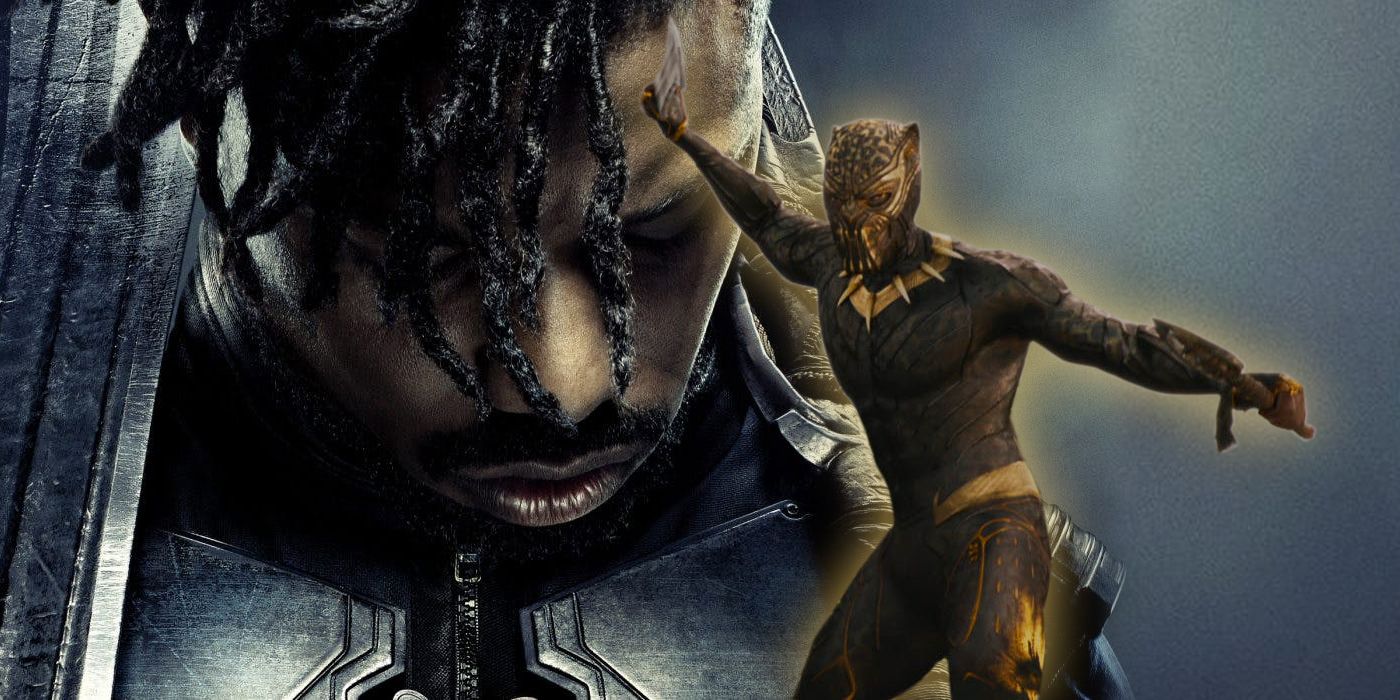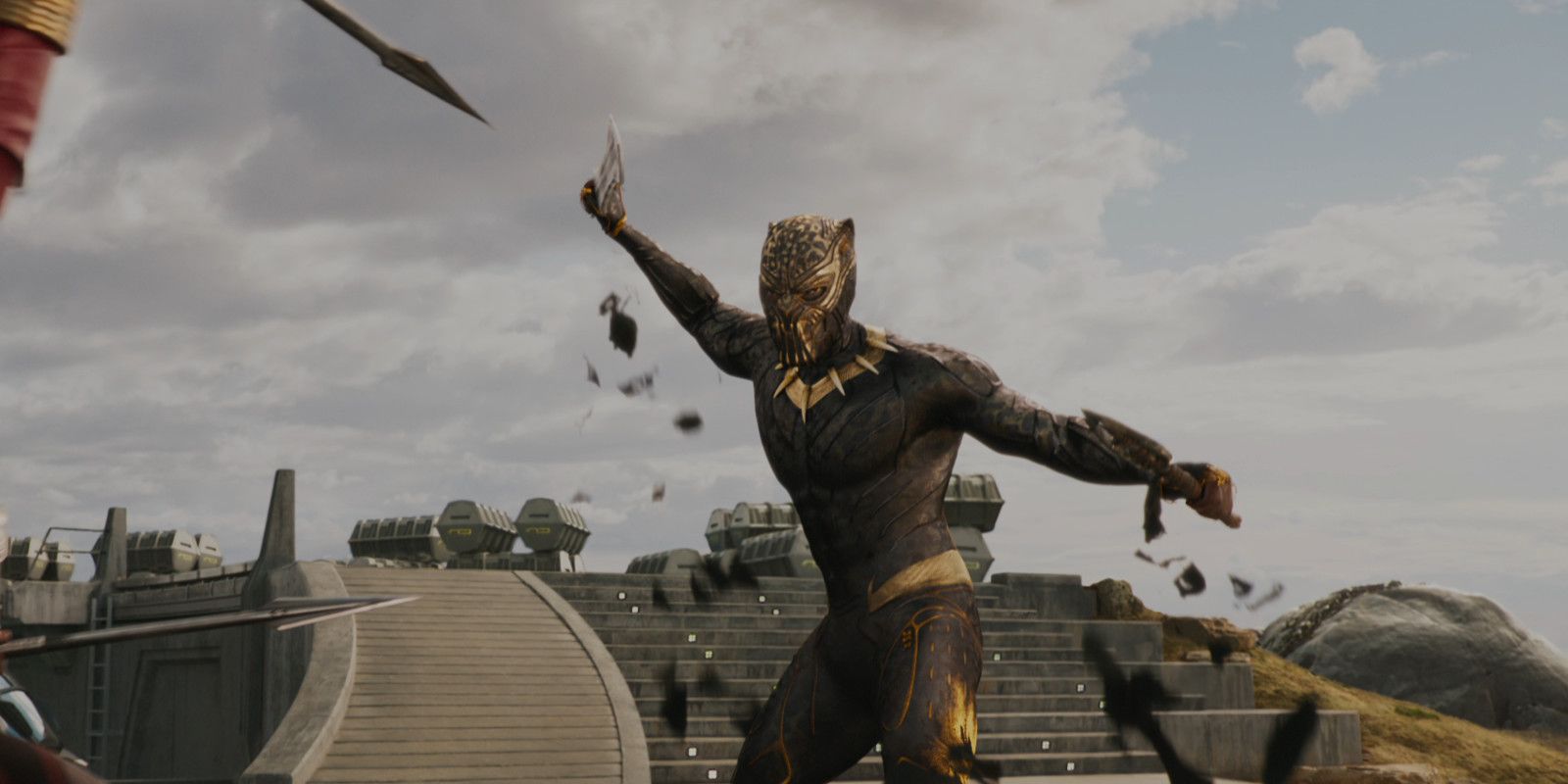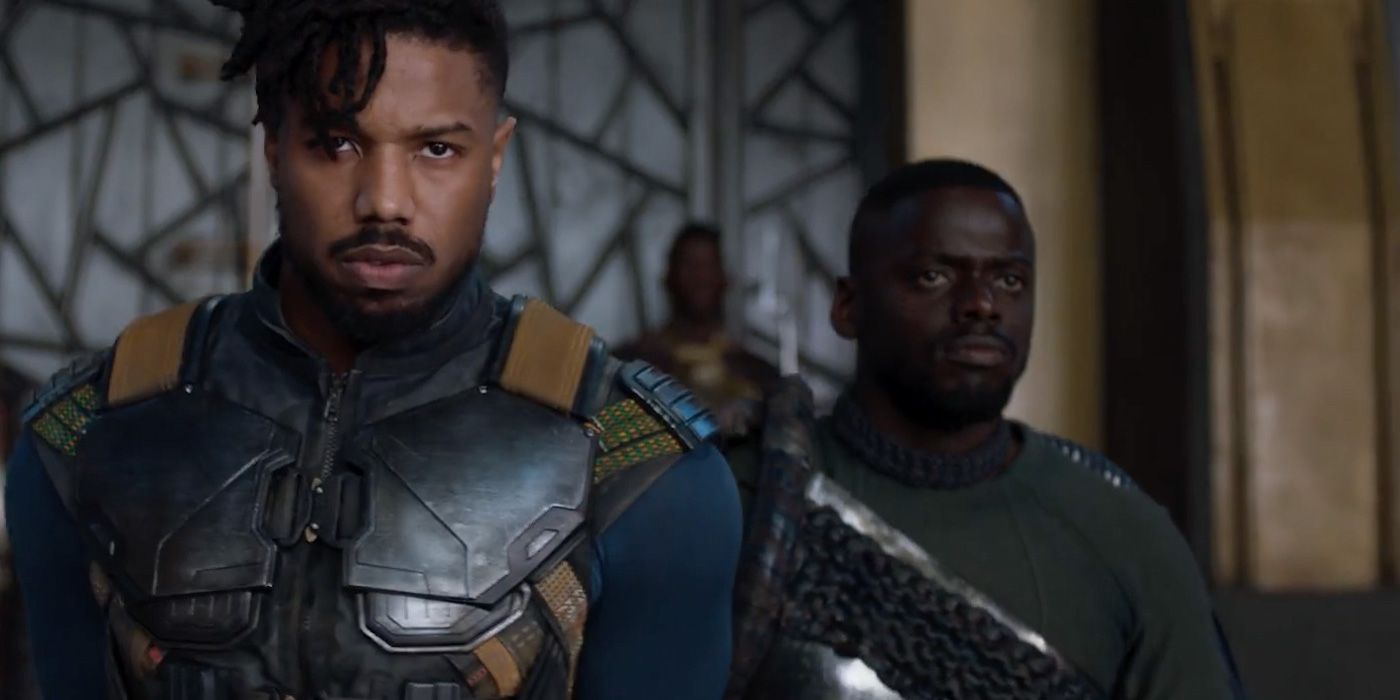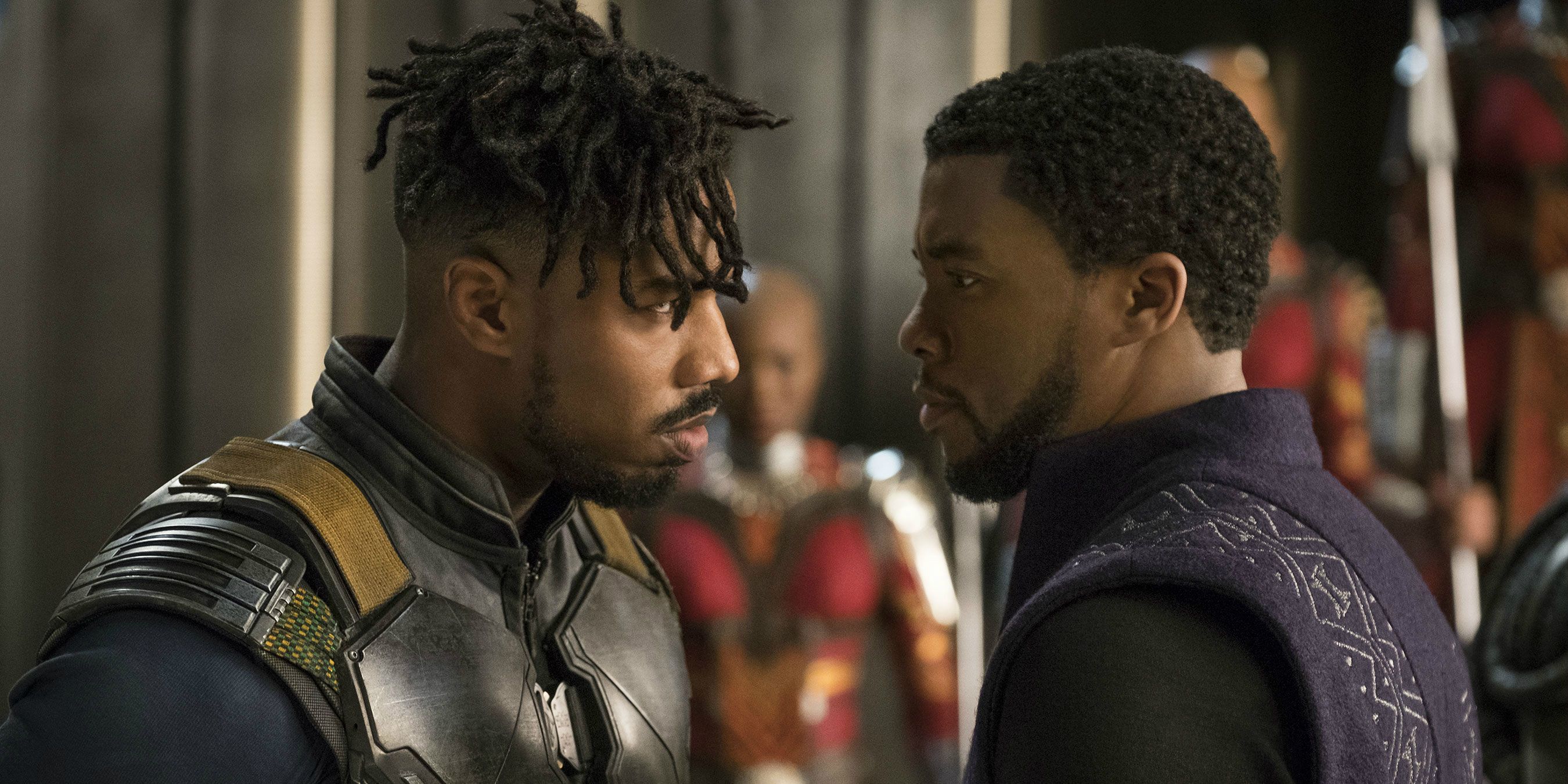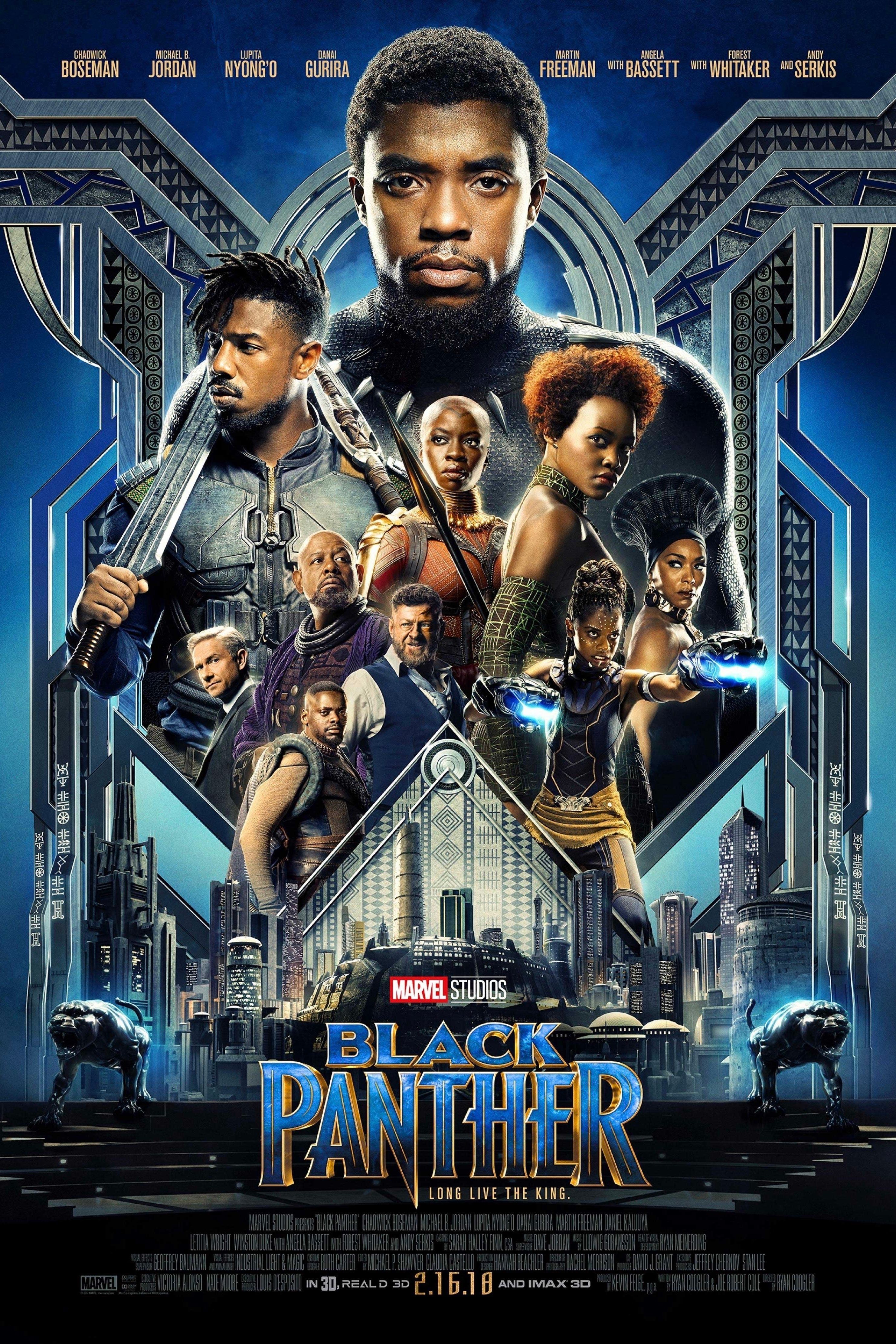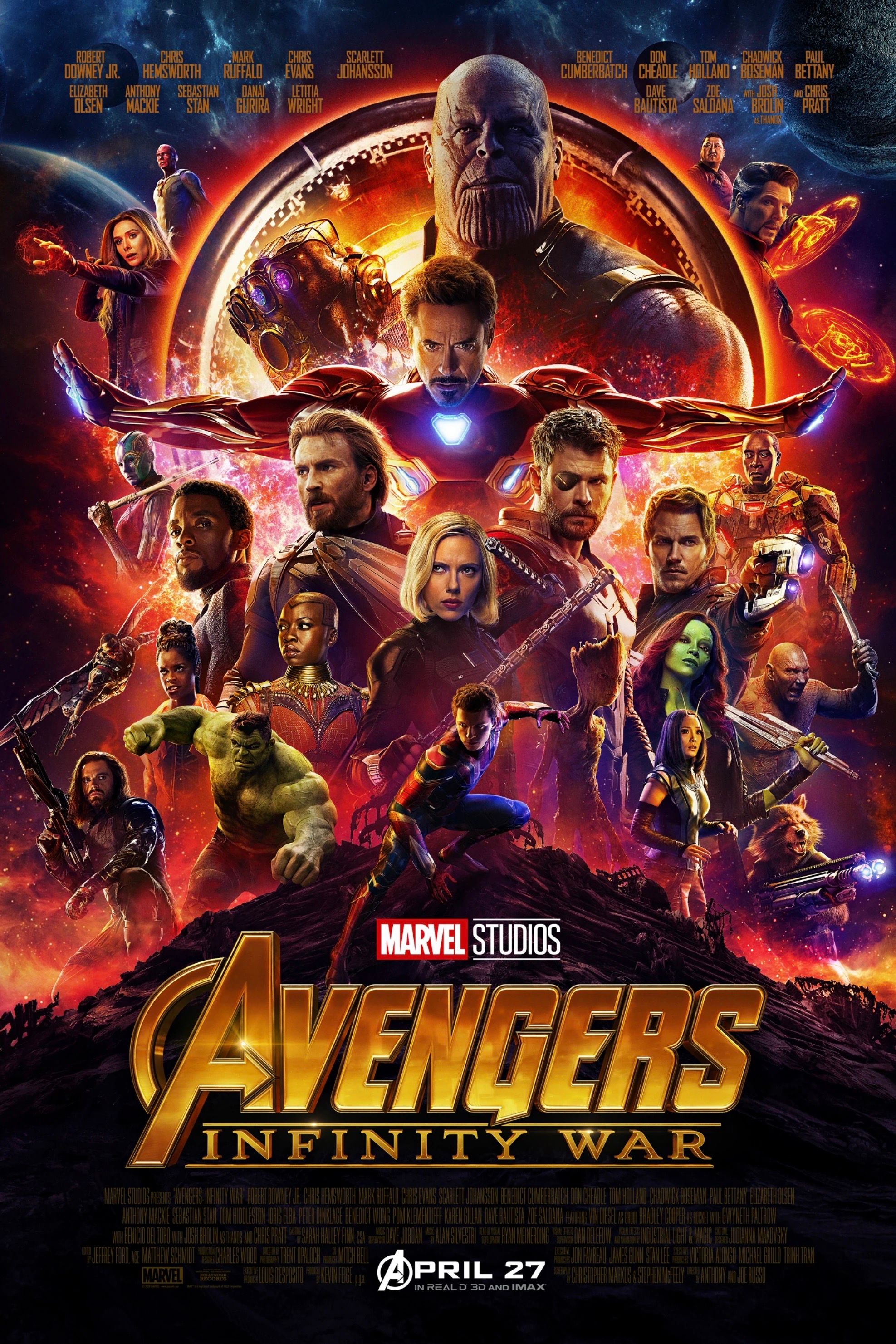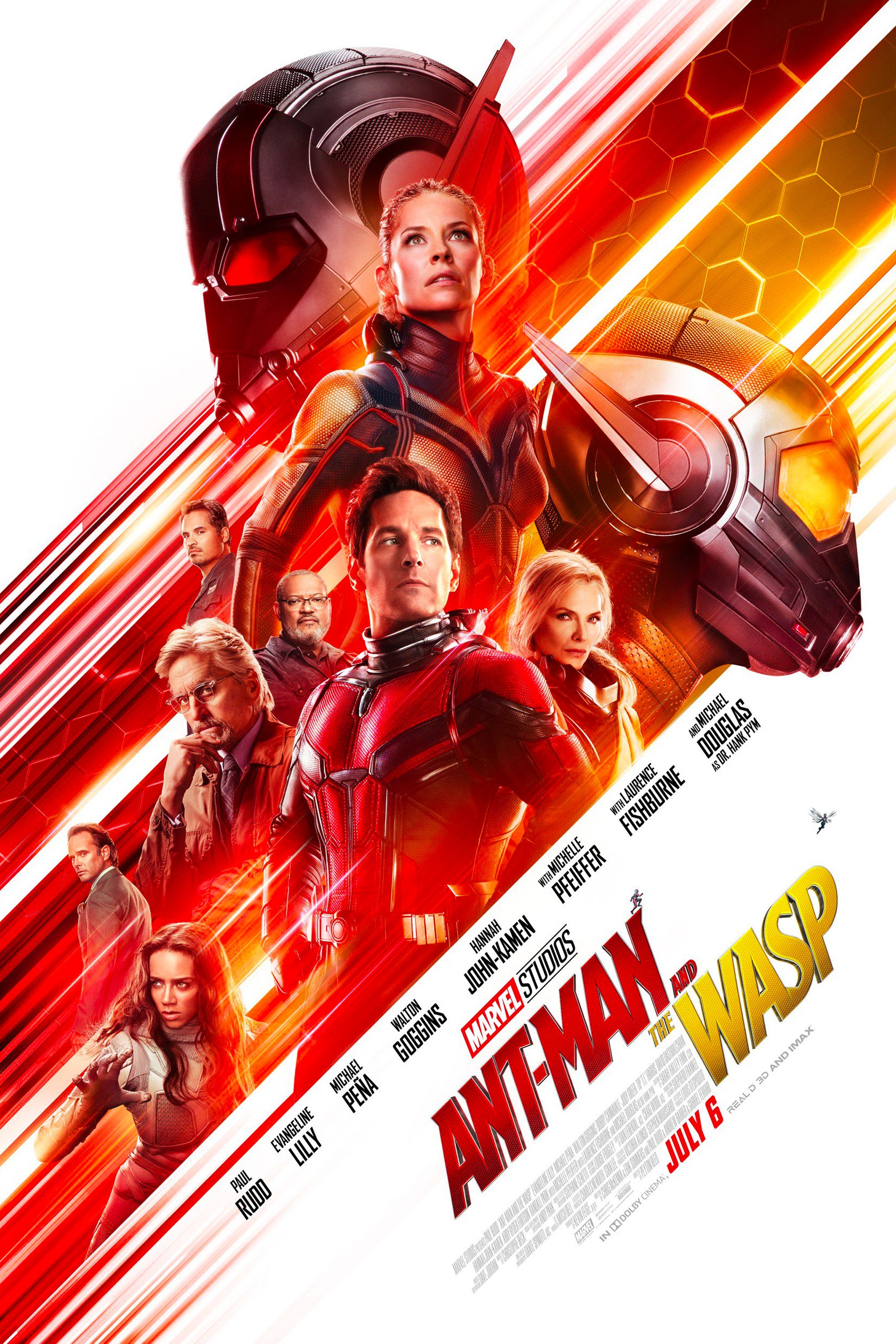Warning: SPOILERS below for Black Panther!
-
Erik Killmonger - specifically the villain twist of who he is and how he came to be - is Black Panther's secret weapon. Portrayed with majestic ferocity by Michael B. Jordan, Killmonger is arguably the best Marvel Cinematic Universe villain thus far. And he is no mere troublemaking bad guy for the superhero to defeat. As Black Panther unfolds, so too do pivotal revelations about Killmonger himself, his origins, and his motivations.
Just as the film's depiction of T'Challa differs from the comics, director Ryan Coogler reconceives Killmonger as a shattered mirror image of the Black Panther. Their stories and fates were intertwined by grand design, and Killmonger's new origin is a dynamic twist adding a compelling new gravitas that powers the events of the second half of the film.
This Page: How Black Panther Secretly Sets Up The Villain Twist
Killmonger's Tragic Backstory Explained
It was a sin by T'Challa's father King T'Chaka that led directly to the creation of Killmonger. Though Wakanda is an isolationist country, they send spies called War Dogs into the world to gather intelligence. One such War Dog was the Prince himself, N'Jobu, whose mission in Oakland in the early '90s came at a time of particularly turbulent racial tension in California: 1992 was the year of the L.A. riots sparked by the Rodney King incident. N'Jobu witnessed black people in political and cultural distress trying to rise up and assert their rights. He felt Wakanda and its technology should be doing more to help them, but this would violate the traditions upheld by his brother King T'Chaka.
Related: Black Panther Character Guide
Instead, N'Jobu worked with black market arms dealer Ulysses Klaue to smuggle Vibranium out of Wakanda, which he planned to turn into weapons to arm the black people in Los Angeles. However, N'Jobu didn't realize that his friend Zuri was himself a Wakandan War Dog, secretly sent by T'Chaka to watch his brother; when Zuri reported N'Jobu's treachery, King T'Chaka to Oakland to confront his brother. Tragically, the prince pulled a gun on the king and Zuri, and T'Chaka plunged his claws into N'jobu's chest and killed him.
However, N'Jobu had a son with an American woman. The boy's Wakandan name was N'Jadaka, but he grew up with his American name: Erik Stevens. Even though, thanks to Zuri, the king knew about young Erik, who was just outside in the apartment's courtyard playing basketball with his friends, T'Chaka opted to leave N'Jobu's corpse behind for the boy to find. Knowing his father was murdered by the Black Panther (he even witnessed the Wakandan aircraft zoom away), Erik grew up resentful of Wakanda, his royal family, and his heritage, eventually becoming known as Erik Killmonger.
How Black Panther Secretly Sets Up The Villain Twist
This all comes as something of a surprise thanks to Ryan Coogler's careful storytelling. He presents young Erik as an avatar to the outside world, rather than story-essential, and further deflects suspicion by having a different actor play the younger Zuri (rather than CGI de-aging Forest Whitaker in a style Marvel is wont to do). Even after that, the twist is so involved it avoids full detection; to guess Killmonger is royalty and will challenge T'Challa's throne still doesn't give the full picture. Perhaps most fun, the film has Killmonger - not T'Challa - be the one taught the history of Wakanda at the start, but plays it vague enough most won't figure it out.
Black Panther deftly keeps the motivations of Killmonger, as Erik Stevens would come to be known, a secret for half of the film. At first, Ulysses Klaue is presented as the main villain the Black Panther hunts. Klaue is an enemy of Wakanda due to the smuggler's past thefts of Vibranium and his various crimes, including setting off a bomb that killed the family of W'Kabi, the security chief of the Border Tribe. Killmonger works with Klaue on the outset to steal Vibranium from the British Museum, and later goes to great lengths to rescue the one-armed arms dealer from captivity, but it was all because Klaue was unwittingly Killmonger's way into Wakanda; Killmonger kills Klaue and uses his corpse as "a token" to gain access to the hidden nation.
Related: Marvel Didn't Always Have Black Panther's Character Rights
But Killmonger's true goal is to claim what he felt was his birthright: the throne of Wakanda. The seismic upheaval that led to Killmonger being crowned King of Wakanda was borne out of King T'Chaka's fratricide, as well as his choice not to recognize his nephew, the young Erik Stevens, over two decades before.
Why Black Panther's Villain Twist Is So Powerful
Killmonger's power play in Wakanda came at a tumultuous time for T'Challa, who had only just lost his father and ascended to the throne. T'Challa was grappling with what kind of King he is to be, whether his nation's tradition of protecting itself through isolationism should be abandoned, and how Wakanda could best be a friend to the world so that could it benefit from his nation's example and resources. Killmonger had been thinking about all of these things as well, and he had his own answers - but none of them were friendly or altruistic.
In Killmonger's mind, Wakanda wasn't doing anything at all to change the world for what he thought would be the better. Erik seized the throne so he could utilize Wakanda's resources to arm the oppressed black people all over the world with Vibranium weapons. With Killmonger's arrival, the decision was essentially made to end Wakanda's isolationism. For by then, CIA Agent Everett Ross had been harbored in Wakanda and had seen its true face and the technology it possessed with his own eyes. As Okoye correctly predicted to T'Challa, Ross would be duty bound to report the truth to his superiors when he returned to the United States. In fact, many influential Wakandans, including W'Kabi, agreed with Killomonger's views and pledged loyalty to his ambitions. Killmonger not only forced Wakanda to change but accelerated T'Challa's decision-making once he regained the crown.
T'Challa knew Killmonger was ultimately right in one important respect: it was time for Wakanda shed its disguise as a poor Third World nation. Killmonger aimed to use Wakanda's might to dominate the world; this is what he felt Wakanda's destiny was meant to be. As an outsider to the country, Erik saw the follies of its long-held traditions in a way that was similar to T'Challa, who learned some hard lessons during the Avengers' in-fighting during Captain America: Civil War. However, their solutions to the question of Wakanda's future were completely different.
Related: Black Panther's Ending Explained In Detail
Killmonger had grand plans on how to use Wakanda. The outcast prince saw it as the most powerful African nation on Earth, one that had never been colonized, but had the might to do to all the other nations what had been historically done to Africans for centuries. Part of his revenge would be to use Wakanda's advanced technology to empower itself by destabilizing the rest of the world. Killmonger embodied the monster that Wakanda itself could become if it used its technology to bring the world to heel instead of building bridges and leading by example as T'Challa intends to.
Black Panther Is Marvel's Best Family Rivalry
The fact that Killmonger and T'Challa are cousins in Black Panther, which is a different take on Killmonger in the comics, adds a provocative extra layer to their rivalry. Because they are family, this is the most deeply personal animosity we've seen yet between a superhero and supervillain in an MCU movie. Only Thor and Loki's relationship is as complex, yet even though they grew up together, the Odinson has been quick to remind Loki is adopted. Killmonger reimagined as a blood relative creates an undeniable dramatic tension that rocks not just T'Challa but his entire royal family.
Killmonger was the dirty secret T'Chaka kept from everyone else in Wakanda except Zuri. He was something meant to be forgotten and ignored. Instead, Erik Stevens learned all he could about Wakandan culture and his heritage while serving in the U.S. armed forces and learning the specific skills he would need to literally destabilize other countries - skills he directly applied in his takeover of Wakanda. Meanwhile, T'Challa knew his father's sins created Killmonger. Had the dead king accepted his nephew into the family, Erik's life would have been vastly different - and better. In the end, Killmonger was the Black Panther's fault.
While Killmonger went about his plans through murder and cruelty, the vision he received after he drank the Heart-Shaped Herb showed a glimpse of Erik's own heart. We saw the pain of losing his father he secretly nursed. N'Jobu loved him and wanted N'Jadaka to be accepted among his people. He left behind as much information about Erik's Wakandan heritage as he could. Can Killmonger really be blamed for resenting his uncle King T'Chaka and wanting to avenge the murder of his father? How does a child who rushes home to find his father murdered by the Black Panther not feel that there's corruption in Wakanda's very soul? Killmonger dedicated his life to doing something about it. Killmonger felt personally victimized by Wakanda and T'Chaka, so revenge against Wakanda's royal family was certainly part of his drive.
Related: Marvel Didn't Always Have Black Panther's Character Rights
In the end, it was hard not to feel the tragedy between the cousins when T'Challa gifted the mortally wounded Killmonger with a sight he'd always yearned to see: the Wakandan sunset. However, Erik's death may not be permanent - especially in a place with the technology Wakanda possesses. Hopefully, there can be a way to bring Killmonger back for Black Panther 2.
NEXT: When Will Black Panther 2 Release?

